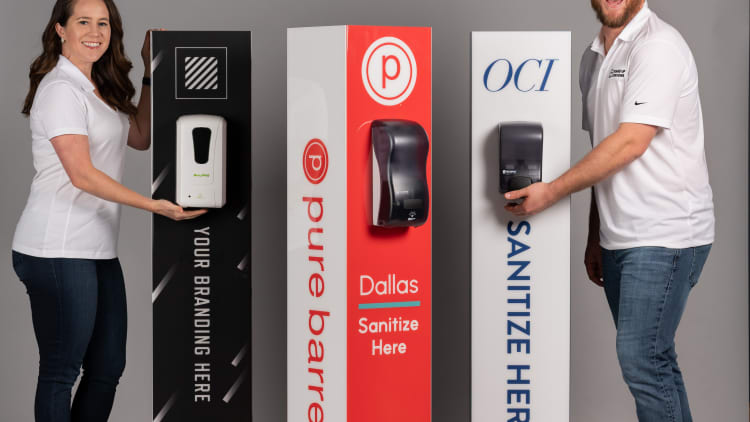Ro, an online health start-up, has built a big business by asking consumers to pay cash to help alleviate many of the most common medical complaints without having to visit a doctor in person.
The company, which started out by selling hair loss supplements and erectile dysfunction medication to men, has built a range of health apps and says it's now generating $250 million in annual revenue -- without taking insurance.
When it launched in 2017, the company's flagship service, Roman, focused on conditions where men might feel stigma or shame talking to a doctor in person. From there, the company introduced a women's brand called Rory, which delivers birth control, among other medications, and a smoking cessation service called Zero. It now has a medication delivery service called Ro Pharmacy, which delivers more than 500 generic medications at a flat fee of $5 each. To market itself to new patients, it built out a health content offering called Health Guides.
For each of these services, it provides patients with a remote care team. Unlike many telemedicine companies in the space, it focuses on areas of health care where patients are likely to have a repeat need and may need ongoing support, rather than the one-off sinus infections or urinary tract infections. That includes chronic medical conditions, like diabetes and heart disease, which currently afflict nearly half of all Americans.
From those services, patients can schedule time with a doctor, request a refill, ask questions and more. Ro might also refer the patient to an in-person service if needed.
As of this week, Ro is valued at $1.5 billion after closing a new financing round of $200 million led by General Catalyst. That brings its funding total to $376 million, making it one of the most well-capitalized start-ups in the burgeoning health tech sector.
Although it's not profitable, Ro's revenue is growing much faster than typical for a health-care start-up. The company has also been able to avoid some of the costly complexities typically associated with health-care businesses, such as forging deals with insurers and other stakeholders in the industry.
Already, the company says it has grown to 5 million patient-physician interactions. Given the rise of high-deductible plans and the increasing numbers of Americans without insurance, Ro is betting that many more are newly willing to pay out of pocket to access a doctor.
"We want to be patients' first call," said Zachariah Reitano, the company's CEO. "The more we are involved, the more we can impact the outcome."
For Reitano, it's not just about biting off a slice of the $3.5 trillion health-care market. Instead, he notes, the company is looking to "aggregate patients to the point where you can use the shared cumulative leverage to push back on the system."
Reitano believes that there's far too much waste and inefficiency with traditional health care. In his view, it's the result of a system that charges arbitrary prices and doesn't prioritize patient experiences and outcomes. He's hoping that by offering transparent prices and care on demand, people will be increasingly willing to move to a service like Ro, including those who have insurance.
On the back-end, the company is also building software for its doctors so it's easy for them to see who's waiting in the queue -- and which patients are high priority at any given moment. Currently it has between 50 and 100 medical providers on board and about a third of them are on staff (the rest are on contract). The company hopes to change that by hiring more doctors and nurses full time.
In the future, it also plans to offer services for at-home diagnostic testing.
Ro currently is up against start-ups like Hims, which recently started talks about a deal to go public at around a $1 billion valuation. It might brush up against much larger players like Amazon, which offers pharmacy delivery to people juggling multiple medications, and Walmart, which has big ambitions in the health-care space.
While some onlookers think of Ro as health care packaged to millennials, the average age of a Ro customer is now 46 years old, notes Reitano. Most of the users are male, given that Ro started off focusing on men's health, but the company is anticipating that the ratio between men and women will even out in the coming years.
As Ro continues to grow, Reitano is pitching the service to doctors looking to acquire new patients. Rather than building their own software, their patients can use it to book an online or offline appointment, or request a service. As Reitano puts it, its big vision is to become the "Shopify of health care."



